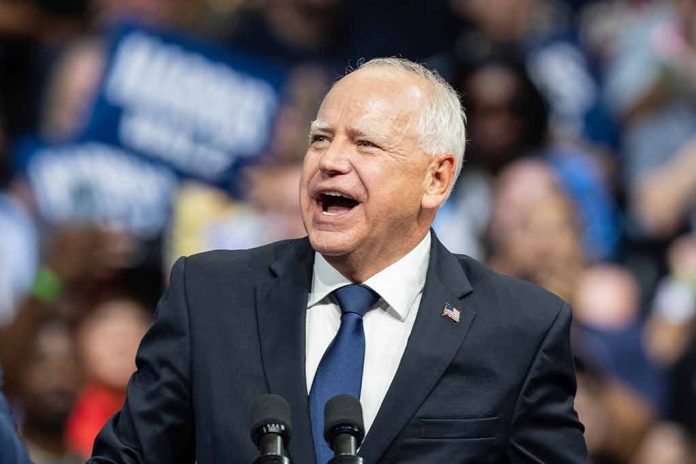
Mark Levin unravels Tim Walz’s proposal to abolish the Electoral College, hinting at the monumental shift it could initiate in American politics.
At a Glance
- Tim Walz seeks to eliminate the Electoral College
- Mark Levin warns of profound implications for rural America
- Democratic strategy may include adding new senators
- Concerns rise over fair political representation
Proposal to Dismantle the Electoral College
Minnesota Governor Tim Walz proposes the elimination of the Electoral College—a move backed by many in the Democratic Party. This proposal, discussed during a convening led by California Governor Gavin Newsom, aims to shift the electoral process towards a direct popular vote. Mark Levin warns this would centralize power in predominantly Democratic states while significantly diminishing the influence of 39 other states. Such a shift, Levin argues, would undermine the political voice of rural and agricultural communities.
The implications of abolishing the Electoral College are multifaceted. Levin suggests that presidential campaigns would converge around urban centers, sidelining rural regions where industries like agriculture and natural resources predominate. The political landscape would cater to city-dwelling populations, thereby neglecting the needs of the heartland that drives much of America’s economy.
Tim Walz says the Electoral College ‘needs to go.’ Mark Levin explains what that would look like https://t.co/I3r5yPYsMV pic.twitter.com/sFzKupnizb
— TheBlaze (@theblaze) October 30, 2024
Democratic Ambitions and Senate Redesign
Levin expands on Democratic ambitions, suggesting an agenda that includes the elimination of the Senate filibuster, facilitating the swift passage of laws unfettered by Republican dissent. This move, combined with the potential to grant statehood to Washington D.C. and Puerto Rico, could result in the addition of four Democratic senators, essentially ensuring a Democratic majority.
Levin argues this could prevent Republicans from retaking Senate control, thereby skewing legislative balance. Such changes, he warns, might pave the way for a lasting Democratic stronghold within American governance.
Legislation and Constitutional Concerns
The Electoral Count Reform Act of 2022 is also under scrutiny. This act aims to fortify vulnerabilities exposed by the events of January 6, 2021, and to provide a direct judicial role in manager electors’ disputes. By simplifying certification procedures, it seeks to prevent congressional interference in election outcomes. However, federal oversight versus states’ rights remains contentious.
A looming challenge remains local jurisdiction disputes that might still lead to lawsuits and recounts, questioning the Act’s definitive authority. Despite efforts to safeguard the process, complexities persist at various government layers.
Sources:
- Mark Levin: The Left Is Rewriting History, Plowing Through Checks And Balances In The Name Of Democracy
- Tim Walz says the Electoral College ‘needs to go.’ Mark Levin explains what that would look like







